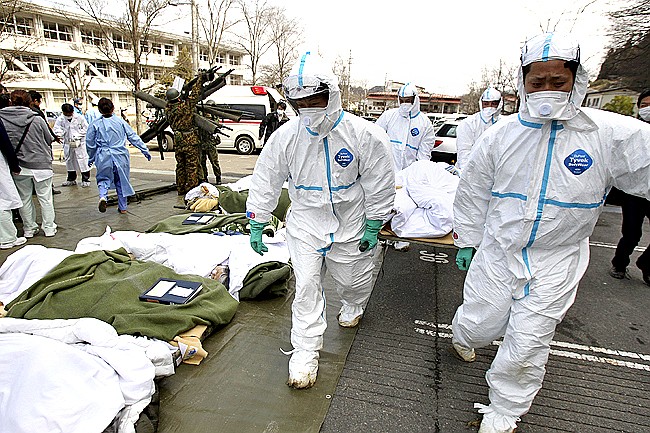U.S. senators were told Tuesday that no U.S. reactors are immune to the kind of blackout problems that have led to radiation leaks in Japan.
"I cannot emphasize enough that the lessons from Japan apply to all U.S. reactors. ... None are immune to station blackout problems. All must be made less vulnerable to these problems," said Chattanooga's David Lochbaum, a nuclear engineer who has worked both at TVA's Browns Ferry Nuclear Plant and as a Nuclear Regulatory Commission training officer.
Now director of the nuclear power project for the Union of Concerned Scientists, Lochbaum was one of several U.S. nuclear power plant regulators and critics who gave nearly two hours of briefings Tuesday to the Senate's Energy and Natural Resources Committee.
He told committee members in Washington, D.C., that he sees two very important lessons from the Japan disaster at the Fukushima Dai-ichi reactor: improve backup power and reduce the risks at spent-fuel pools - swimming pool-like structures where used hot and radioactive fuel rods are kept.
But most importantly, he said, he hopes Congress will "force" the Nuclear Regulatory Commission to "not merely chart a course to a safe place, but actually reach that destination as soon as possible."
Noting what he called NRC's "glacially slow" history, Lochbaum outlined his primary concerns:
* Only 11 of the nation's 104 reactors now are equipped to cope with a power blackout lasting eight hours. The rest have only four-hour battery backup, including the six reactors of three area Tennessee Valley Authority nuclear plants.
In Japan, a tsunami caused by a 9.0 earthquake in mid-March flooded a plant's backup diesel generators, leaving the plant without electrical power and no way to keep the reactors cool after its eight-hour batteries were depleted.
"What Japan shows us is that, when a blackout lasts longer than our assumption of the worst, a presumed eight hours, they [plant operators] were left with no options or not enough options, other than a miracle," he said. "Miracles are great, but you can't rely on them."
* The second lesson from Fukushima Dai-ichi is the need to address the vulnerability of spent-fuel pools.
At many U.S. reactors, there is far more irradiated fuel in the spent-fuel pool than in the reactor core, he said. In addition, the pool is cooled by fewer and less reliable systems than are provided for the reactor core and is housed in far less robust structures.
"More irradiated fuel that is less well protected and less well defended is an undue hazard," he said.
He recommended accelerating the transfer of spent fuel from pools to dry-cask storage, which he says is safer, and upgrading the guidelines and training for operators faced with emergency spent fuel pool problems.
After Three Mile Island's nuclear emergency in 1979, reactor owners and the NRC upgraded emergency procedures and training for reactor problems, but not for spent-fuel pool troubles, he said.
NRC's executive director for operations, Bill Borchardt, said U.S. plants are safe, and the NRC already is making "a quick look" at how to apply Japan lessons to U.S. plants. He said NRC will embark on a 90-day review of the Japan earthquake, tsunami and nuclear crisis "as soon as more details are known" from Japan.
Already, he said, NRC has asked U.S. plant operators to verify their capability to cope with a total loss of electric power and with flooding. Operators also are confirming to the NRC that the necessary backup equipment is in place to cope with earthquake problems.
Sen. Mark Udall, D-Colo., and Sen. Bob Corker, R-Tenn., listened in and asked questions pertaining to new reactor technology now being proposed.
"Is there anything about this recent disaster that would make you feel the smaller modular nuclear reactors [that are naturally cooled without the use of power] we're looking at now that would more safe?" asked Corker, who has been supportive of continued nuclear energy use in this country and region.
Peter Lyons, acting assistant secretary of the U.S. Department of Energy's Office of Nuclear Energy, said, "Well, at least, the small modular reactors would not depend on the use of pumps [that require power] in an accident situation."
Udall pressed Lyons and Borchardt to find ways to make reactors and spent fuel pools safer.
"This is a very timely topic. ...The improbable has become, actually, the possible," Udall said.
